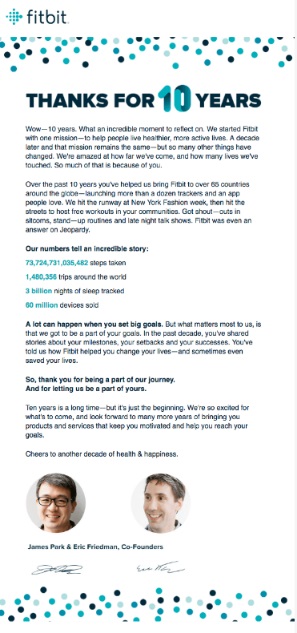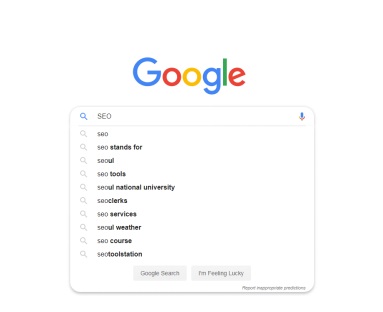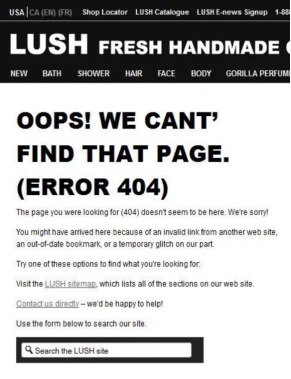5 Mistakes Content Writers for Internet Marketing Need to Avoid

93% of B2B marketers reveal that they use content marketing to boost brand awareness but only 43% of them vouch for its effectiveness.
Most marketers will look at these statistics and think that a 50% turnover is ‘good enough’.
But a pessimist would say that the glass is still half empty.
Internet marketing agencies strive to decrease this gap. They know that companies need a team of professional writers who can beat these odds by producing perfect pieces.
You want content that makes for a compelling read. The writing has to have the power to truly move the audience.
But this kind of impact cannot be created if your writing is crawling with errors. Those things create a stumbling block for readers. Not only does it dampen the brand’s credibility, but it also results in a failed marketing attempt.
So let’s look at the cardinal mistakes content writers should steer clear of:
- Falling Down the Subjective Line
- Missing the Point
- Getting Tangled Up in Jargon
- Missing Out on SEO
- The Cardinal Sin: Forgetting to Proofread
1. Falling Down the Subjective Line
Do you remember this Bloomingdale’s 2015 gaffe? Someone from their writing team thought that it was funny…

We know that the #MeToo movement hadn’t happened yet, but this copy still reeks of innuendo.
So rule number one of writing content for internet marketing is writing material that won’t create controversy. Content writers need to be highly perceptive.They need to understand the nuances and undertones of their words and messages.
This is especially true in our modern era of self-awareness.
We live in an age in which even the smallest content piece is judged and critically examined by millions. And all within seconds of being published!
This leaves no room for mistakes. Thus, it’s prudent to be critical of what you write and how you write it. Otherwise, your next content marketing ploy just may damage your brand’s reputation.
2. Missing the Point
You might have heard that millennials have ridiculously short attention spans.
Well, the Times proves that approximately 55% of your readers have the same problem!
They’ve estimated that most people ‘spend fewer than 15 seconds’ actively reading websites.
That means that copywriters who keep things short and snappy are actually on to something. So once you’ve written your chunky content piece – you need to cut it down.
Look at FitBit’s email, for instance.

At first glance, it may look like a lengthy email. But once you start reading it, you realize that it’s actually brilliant.
What’s the take-away here?
- The writing is crisp and concise
- They’ve added statistics to celebrate the milestone
- They don’t go on and on about themselves
The best feature is the content writer’s clever use of bold text. Just read the highlighted bits and you’ll notice that it sums up the email.
A tactic like this ensures that your readers get the gist of the message even if they opt to skim the email.
In short, internet marketing is all about keeping things short and sweet.
3. Getting Tangled Up in Jargon
Raise your hand if you think using jargon makes you look smart?

Most content writers like using tech terms and medical lingo to create an intelligent persona. It’s a pretty clever deception. But it doesn’t always work. That’s because content writing is more about the audience than the expert. The truth is that ‘jargons make you sound unapproachable.’
Think about it.
Would a dissertation on ‘Posterior Chamber Phakic Intraocular Lenses’ be apt for WebMD or Healthline? You might score some brownie points with your colleagues but the target audience will surely close the window when they see what they’re about to read.
That’s because websites targeting lay consumers must have a clear-cut marketing strategy aimed at the average person. Their main aim must be to enlighten the reader, rather than to show off.
In the vast majority of cases, readers want and expect content that is:
- User-friendly
- Simple
- Comprehensive
People prefer to read something that doesn’t require them to reach for a dictionary. So drop the jargon and be sure to tailor your web content for the target audience.
4. Missing Out on SEO
Admit it. In the pursuit of creative content, writers often miss out on some important technicalities (e.g. SEO). We get why; finding the right balance between readable text and ticking all the technical boxes isn’t that easy. Yet, ignoring SEO in your content writing is a huge mistake.

Digital marketing experts state that SEO and content marketing are like PB&J. These strategies work like a dream team when merged together. That’s because SEO has the power to take brand awareness up a notch.
And this isn’t a tall claim!
Statistics reveal that:
- 50% of searches are over four words long
- 61% of marketers prioritize SEO for inbound marketing
- Google gets 63,000 searched per second.
If you do the math for the last one, that’s like 5443200000 per day! Think about all the new leads you’ll get by embedding SEO in your content.
The keywords and backlinks are like a trail of breadcrumbs for the web visitor. The right trail can lead the target audience right to your webpage.
So, how to use SEO? Some copywriters use SEO tools to get the best keywords. Others might approach it from the simple and logical perspective of the target customer and the terms they may use. Whichever it is, the key is to be as specific as possible with your SEO keywords.
For instance, a blog post on SEO won’t rank high if you use the term ‘SEO’ as your keyword. That’ll just put it in direct competition with millions of similar articles published online. The trick is to choose a keyword that is more precise, for example, “how to choose SEO keywords”.
Keywords can be used in so many different ways. The trick to good content writing with SEO is using keywords that are more focused and less competitive, while still remaining relevant to your audience.
5. The Cardinal Sin: Forgetting to Proofread…
Do you proofread your work?
If the answer is ‘no’, then you’re in deep trouble. Simply put, there’s no excuse for bad grammar.
There are countless articles written on this subject. An enlightening piece from ‘Adweek’ says that if you want to be ‘taken seriously in business’ then it’s essential that you produce flawless copy.
They also point out that:
‘People form their initial impressions based on what they see online.’
From T-shirts, billboards, to the ‘Error 404’ message, your readers – whether they are grammar enthusiasts or not – want brands to dot all their i’s and cross their t’s. Otherwise, you may end up listed on Hubspot alongside other brands that made some embarrassing grammar errors.

Internet marketing is critical to boosting brand awareness. It opens up opportunities for customer engagement. Remember, your content represents the brand and what it stands for. And the slightest hint of sloppy grammar can turn your audience off. Poor grammar and spelling mistakes are a breach of basic “netiquette”. And no company wants to be known for its mistakes.
Therefore, content writers absolutely must check and recheck their work before submission. This includes checking for grammatical errors, typos, punctuation and spelling mistakes. After all, you don’t want the audience to misinterpret what you wrote on the basis of a misplaced comma.
Let’s Sum Up…
Effective content is measured not just by your writing skills, but how your words cause readers to act. There’s no way of knowing exactly how an ad or blog post will perform. But it’s always important to avoid the basic content writing mistakes above. This will help you create content that is crisp, clear and error free, and your writing will reinforce the fact that – in our online world – ‘content really is king’.











